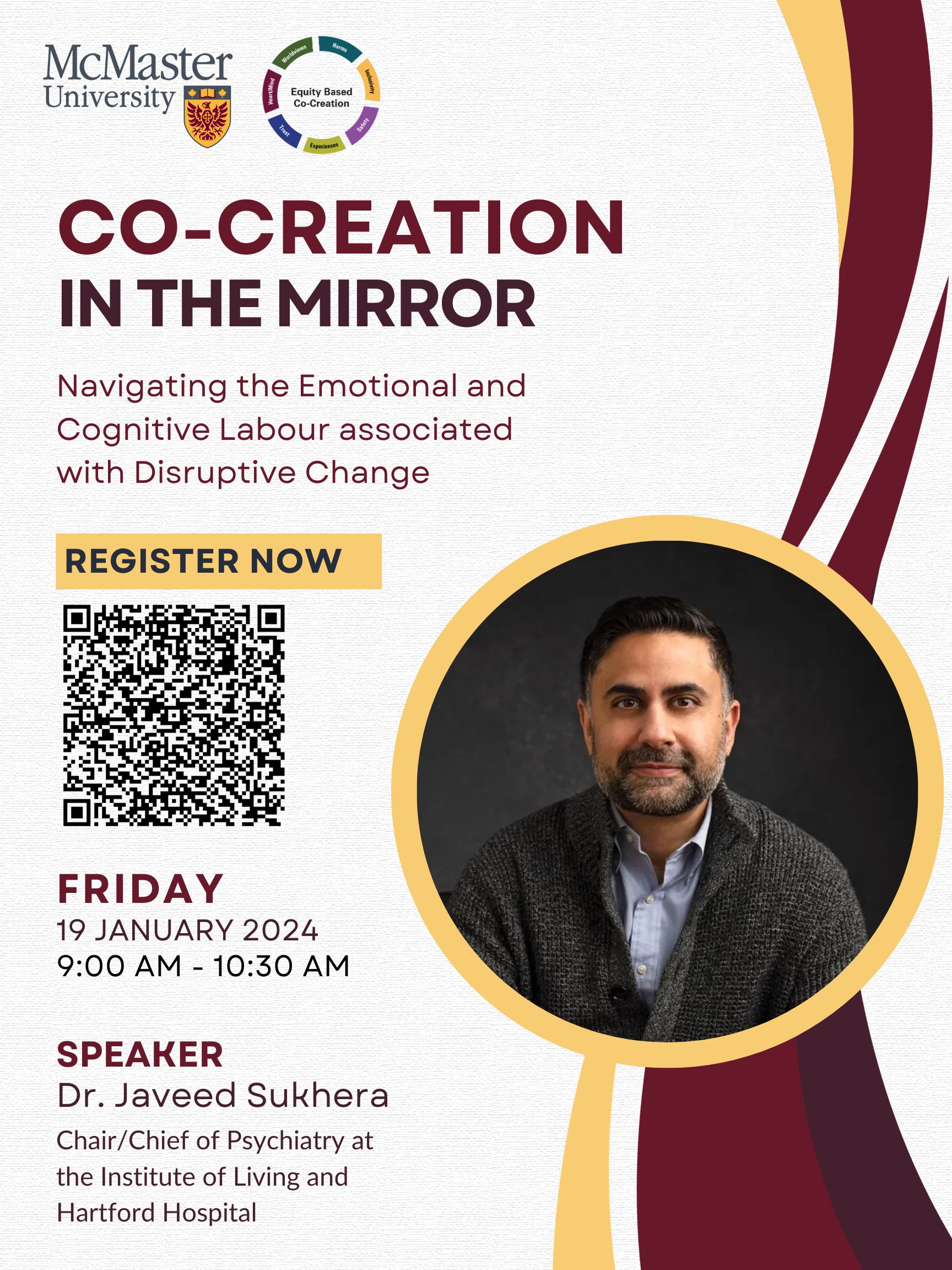2024 Webinars
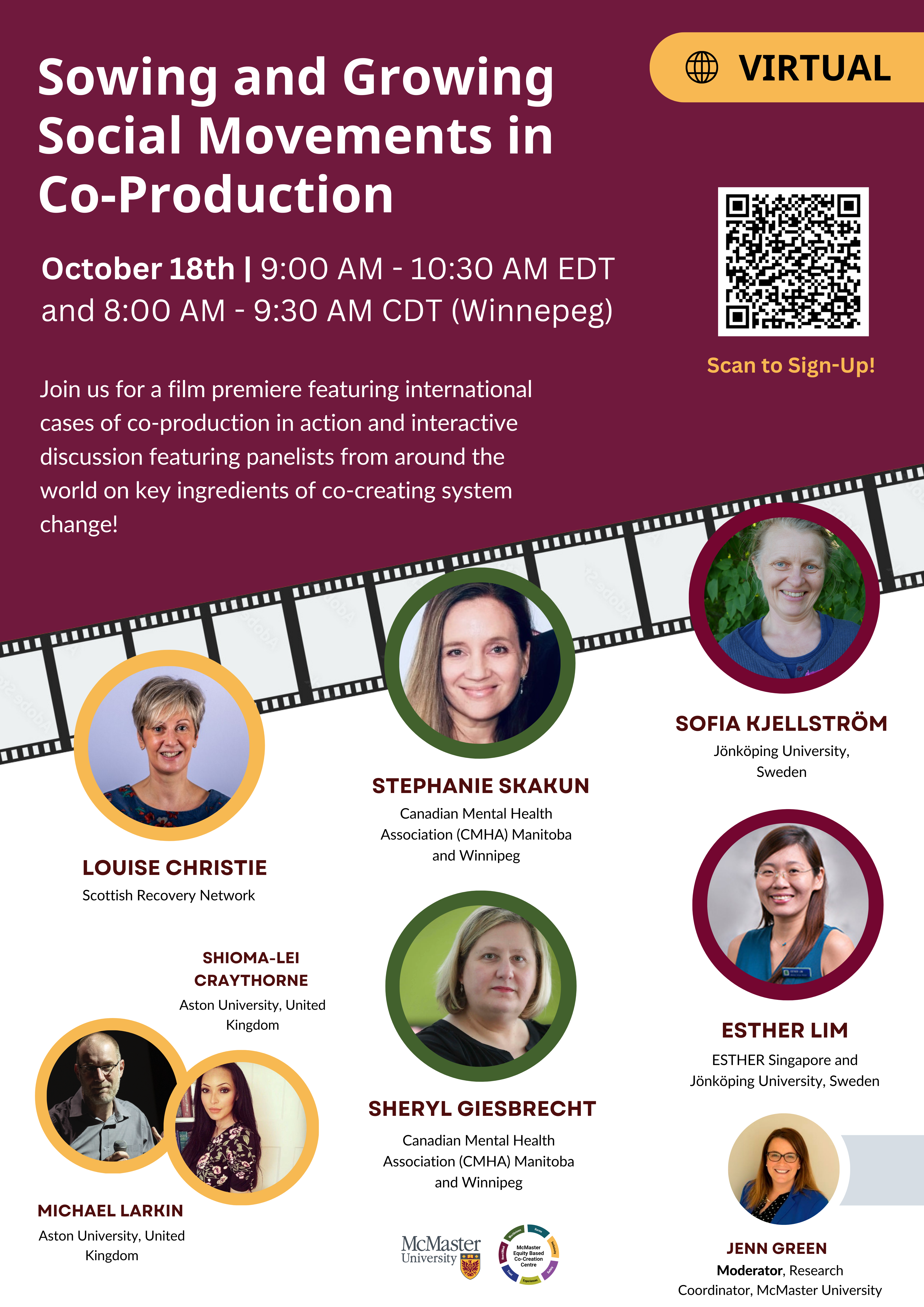
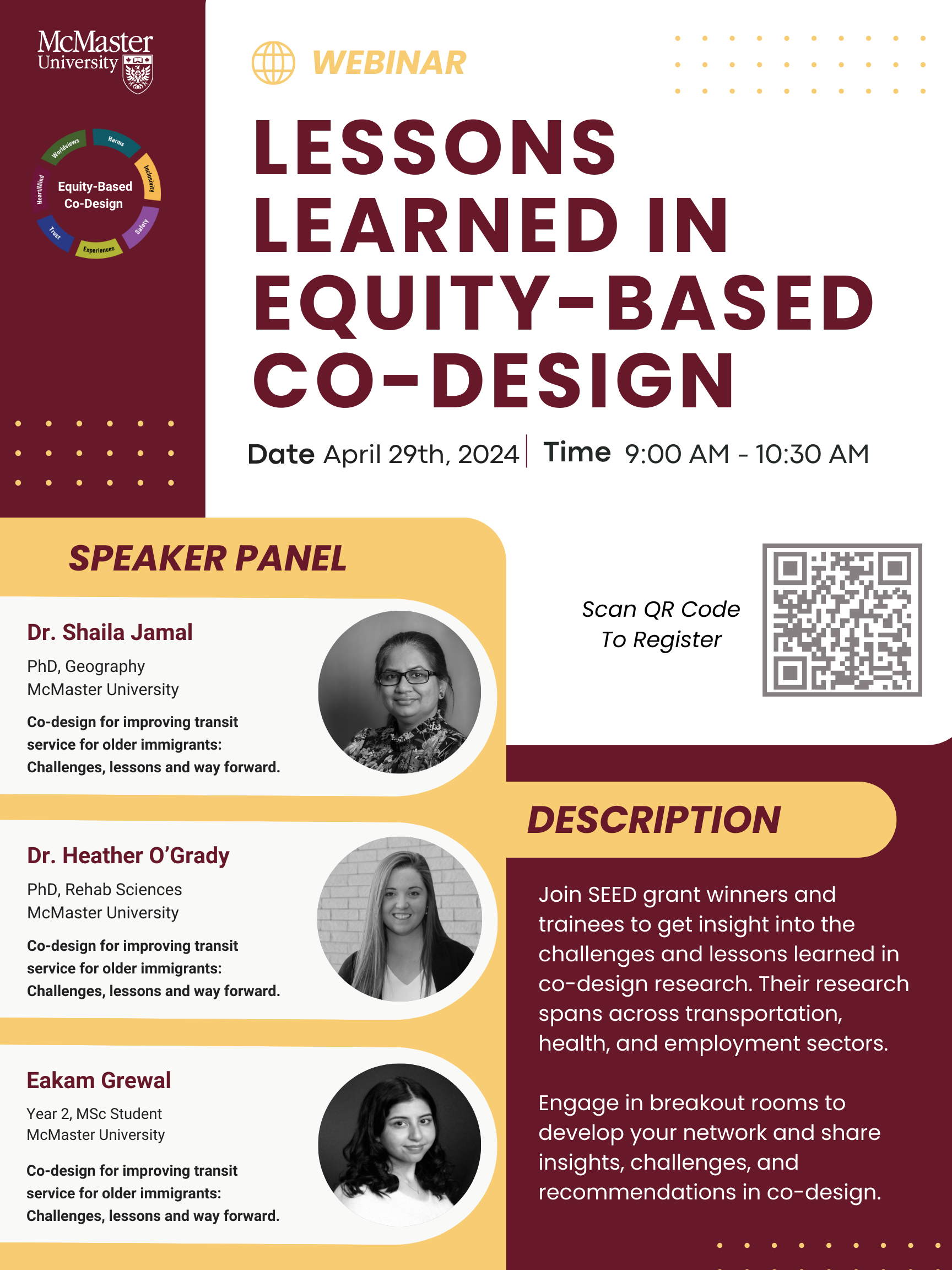
Join SEED grant winners and trainees to get insight into the challenges and lessons learned in co-design research. Their research spans across transportation, health, and employment sectors. Engage in breakout rooms to develop your network and share insights, challenges, and recommendations in co-design.
2023 Webinars
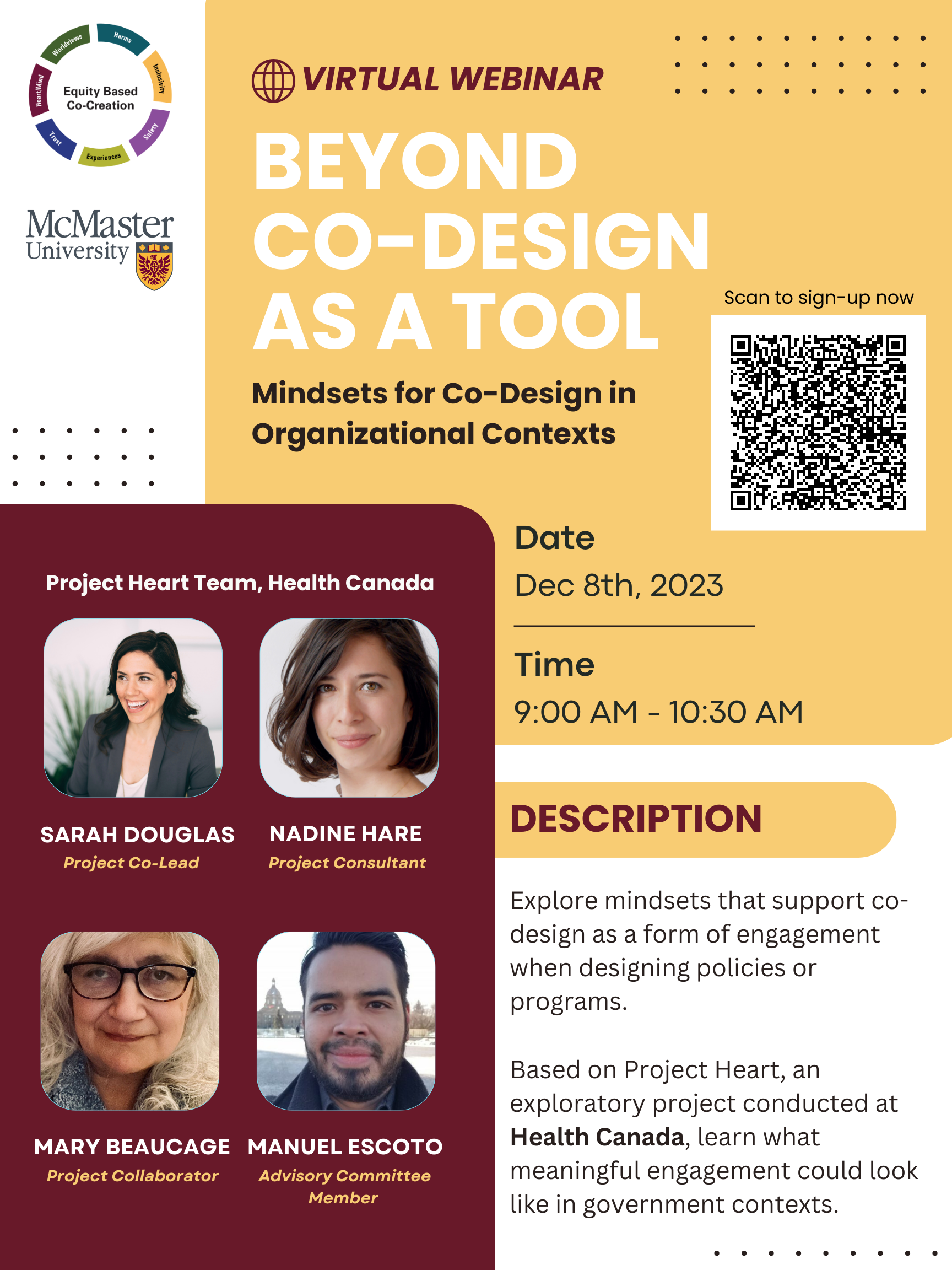
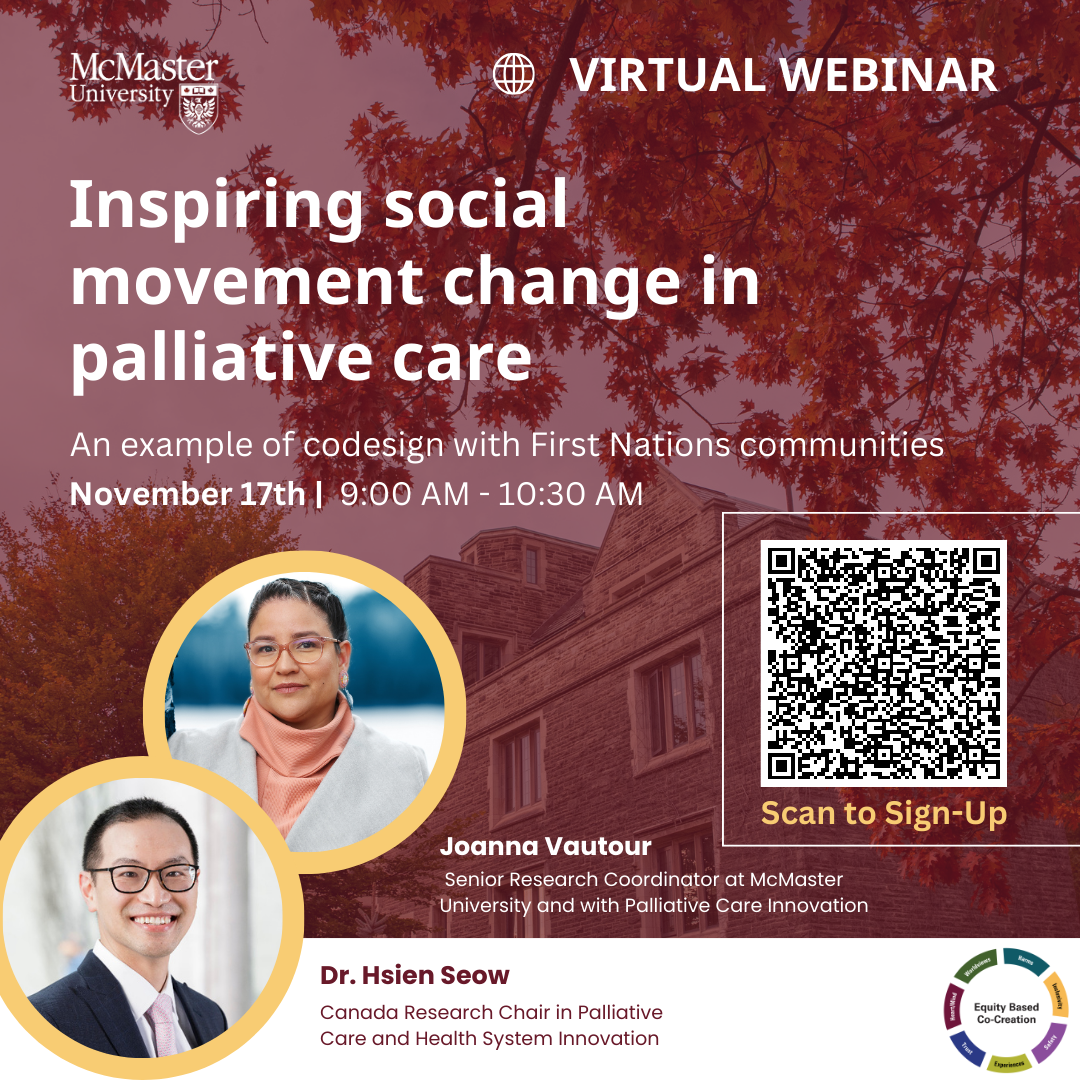

Participants explored the illustrations of equity-based co-creation (EqCC) that were prototyped at the CoPro2022 Forum. The main EqCC tenants arising from the prototype analysis were shared and discussed. We explored visual prototypes of EqCC, and thematic analysis of the essential elements of this approach.
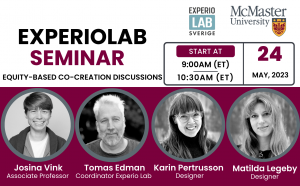
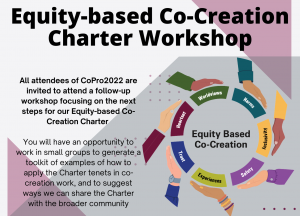
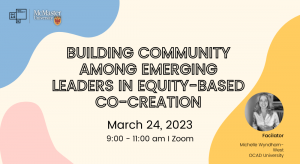
March 2023Zoom
Workshop focused on inspiration, networking, and dialogue with emerging leaders practicing equity-based co-creation. Facilitated by Dr. Wyndham-West from OCAD University, the event brings together students from OCADU’s Inclusive Design and Design for Health programs and McMaster University. Students showcase their design projects, serving as a springboard for discussions on the current and future directions of co-design scholarship and practice.
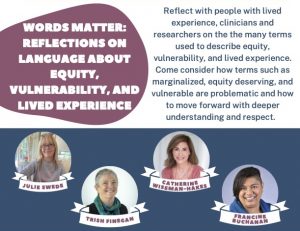
2022 Webinars
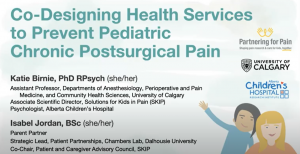
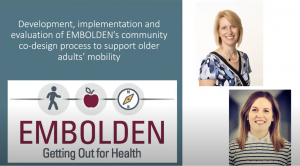
Participants will learn about a community co-design process between researchers, health and social service providers and older adults to develop a health intervention including physical activity, socialization, healthy eating and system navigation support. Challenges and opportunities associated with co-designing during the COVID-19 pandemic will be outlined. Older adult research partners’ contributions to the design of the co-design evaluation study will be highlighted.
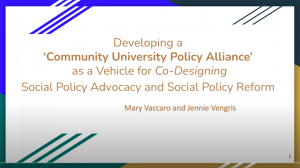 May 2021
May 2021
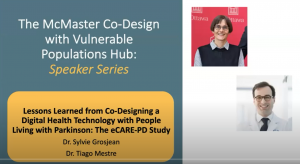
Drs. Sylvie Grosjean and Tiago Mestre will present their co-design approach within a case study involving people living with Parkinson, caregivers and health care professionals in the design of a technology called eCARE-PD. They will highlight key phases in the digital development process, demonstrating how co-design creates conditions for the social acceptability of the technology to be negotiated and progressively defined. They will share critical reflections on the value and function of stakeholder engagement in the process, and conclude with key “lessons learned”.
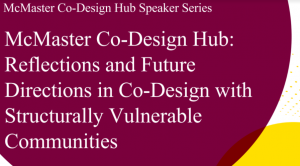
How has the McMaster Co-Design Hub worked to advance co-design with structurally vulnerable communities? Where do we need to go from here? This speaker series event discusses the work of the Co-Design Hub over the past year and our emerging Theory of Change, as well as explore opportunities to engage, network, and share insights with our growing co-design community.
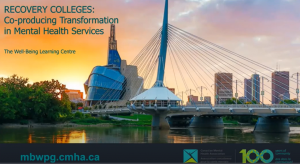
Sheryl Giesbrecht, Manager of the CMHA Well-being Learning Centre in Manitoba, will be our guest facilitator to share her experiences in co-producing a Recovery College in Winnipeg, Manitoba. Coproduction takes co-design to the next level by making it an ongoing way of doing business.
Recovery Colleges originated in the United Kingdom as an innovative educational approach in which
service users and service providers co-design and codeliver courses, and co-learn together to foster mental health recovery. Recovery Colleges empower
through education and build partnerships in the journey of recovery, thereby challenging the current
paradigm of mental health treatment in Canada.
2020 Webinars
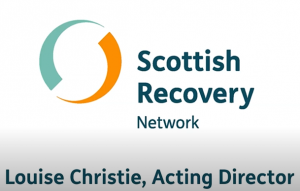
Our guest speaker joined us from Scotland: Louise Christie is the acting Director of the Scottish Recovery Network, a unique non-profit initiative that was established in 2004 to promote and support mental health recovery in Scotland and beyond. She discussed their “Making Recovery Real” initiative which involves partnership development to support local agencies, organisations, and people with lived experience to work together to identify ways to support mental health recovery and how to put this into action.
COVID-19 brought new challenges, not only to mental health, but also to traditional forms of engagement
and co-production that were core to the work of the Recovery Network. Ms. Christie shared some of the innovations that they have put in place (eg. online conversation cafés), and the opportunities and challenges that they have faced along the way.
 March 2020
March 2020
The second case study focused on the role of young people from two urban communities in designing and conducting research and interventions in a CRT called “Yathu-Yathu” that aims to increase knowledge of HIV status among young people.
About the Speakers
Dr. Musonda Simwinga is a Senior Social Scientist and Deputy Director of Research- Qualitative at Zambart, with over 15 years of experience conducting research in TB and HIV in high burden settings both as a social scientist and community engagement expert.
Dr. Virginia (Ginny) Bond is a social anthropologist who is an Associate Professor at the London School of Hygeine and Tropical Medicine based overseas at Zambart. Since 1991, she has worked in Zambia and elsewhere in the Sub-Saharan African region.
To cite this resource, please use:
Bond, V. and Simwinga, M. (2020). Experiences of Co-Design with Vulnerable Populations in Two Randomized Trials Aiming to Reduce HIV in Zambia [Powerpoint slides]. Retrieved from: https://codesign.mcmaster.ca/my-resources/
2019 Webinars
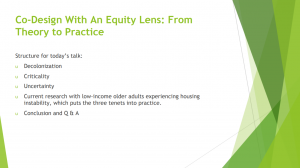
Dr Wyndham-West presented at the first Co-Design Hub Speaker Series, discussing principles of inclusive design from a health equity lens, drawing upon theory, research, and practice. Dr. Wyndham-West is an Assistant Professor in the Faculty of Design at the Ontario College of Art and Design (OCAD) University, is a critically applied medical anthropologist specializing in health equity, aging, housing, emerging technologies and public policy development.
To cite this resource, please use:
Wyndham-West, M. (2020). Co-Design with an Equity Lens: From Theory to Practice [Powerpoint slides]. Retrieved from: https://codesign.mcmaster.ca/my-resources/

